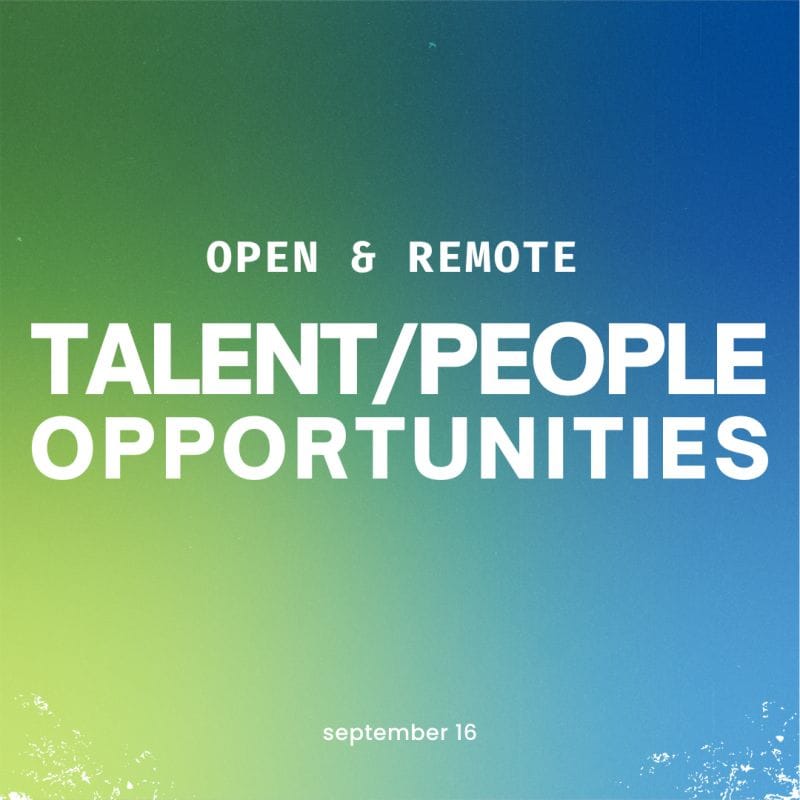- Chit Chats with Lonni
- Posts
- Understanding the Types of Recruiters That You May Encounter During Your Job Search
Understanding the Types of Recruiters That You May Encounter During Your Job Search

`
Job searching is already stressful, and half the battle is understanding who’s who in the recruiting world. Not all recruiters are the same—and knowing the difference can help you navigate the process with more confidence.
Corporate/ In-House Recruiter
These recruiters work directly for a company. They’re salaried employees with benefits just like anyone else at that company. They don’t get paid extra when someone gets hired—their job is to support the business long term.
Agency Recruiter
Also called third-party recruiters. This is where the “commission” stories come from. Agencies usually get paid when a candidate is hired, either through:
Contingency model: The agency only gets paid if their candidate is hired (a percentage of the candidate’s first-year salary, often 15–25%).
Retained search model: The client company pays the agency upfront to conduct a search, usually for high-level roles, regardless of the final outcome.
Executive Recruiter / Headhunter
Executive recruiters specialize in filling senior-level, leadership, and highly specialized positions. They often work under retained search agreements, where clients pay them in stages (part upfront, part during the search, and part when the hire is made).
It’s also important to note that many companies hire their own in-house executive recruiters. These recruiters focus exclusively on leadership roles within that organization, making them experts in sourcing, evaluating, and securing top talent for the company’s most critical positions.
Contract Recruiter
Usually brought in on a project or temporary basis. They’re paid hourly or on a short-term salary contract—not per hire.
Sourcer
Sourcers are usually salaried employees, either in-house or at an agency. Their role is about building pipelines, not closing deals, so they’re not typically commission-based.
RPO Recruiter (Recruitment Process Outsourcing)
Paid through a contract between their firm and the client company. The firm may bill by volume of hires, hours worked, or projects completed. RPO recruiters themselves are usually salaried.
✨ Why this matters for you:
If you’re working with an agency recruiter, remember they only make money if you get hired—so they’re motivated to “sell” you to a company. In-house recruiters, including those who specialize in executive hiring, are focused on long-term fit and culture since they’re tied to the company’s success.
Let’s Make This Interactive 👂🏽
I want this newsletter to serve you. Hit reply and share what you’d like me to break down next.
Your feedback helps shape what I share here.
Job Board 🚨

Please visit the link for more information about all roles. I am not the recruiter for any of them. 🙂
Special thanks to Haley ONeill for collecting this list for HR/People roles. Make sure to connect or follow her on LinkedIn for all things recruiting.
🟢 Newsela, HR Analyst: https://lnkd.in/e_YcRf3b
🔵 Sana, Head of People: https://lnkd.in/eEyBrPPX
🟢 Coastal, Senior Talent Specialist: https://lnkd.in/eR3vNADM
🔵 Underdog, Manager, People Programs: https://lnkd.in/exw2brKR
🟢 Flowmingo AI, Talent Acquisition Business Partner: https://tally.so/r/mVX5zl
🔵 Enable, Sr HR Business Partner: https://lnkd.in/eMRMCb-Y
🟢 VCA Animal Hospitals, Sr. Manager, Talent Acquisition Operations: https://lnkd.in/eA5QA-pp
🔵 Stripe, Program Manager, Talent Mobility & Immigration: https://lnkd.in/enR2STf6
🟢 Plenful, Talent Acquisition Specialist: https://lnkd.in/eCE6qsEJ
🔵 Yahoo, Performance Manager: https://lnkd.in/ebqPzw-P
📌 Tip of the Day: Questions That Make You Stand Out
When you’re in an interview, the questions you ask matter just as much as the answers you give. They show preparation, curiosity, and whether you’re thinking like someone who’s already on the team. Here are a few to keep ready:
What does success look like in this role in the first 90 days?
How does your team celebrate wins or recognize top performers?
What are some challenges the team is currently facing that I could help solve in this role?
How do you see this position evolving over the next year?
How has organizational restructuring (if any) impacted this team and its goals?
What does career growth look like on this team?
What’s one thing you enjoy most about working here?
✨ Pro tip: Aim to have at least 2–3 solid questions ready, even if you think you already know the answer. It shows you came prepared and want to

Reply